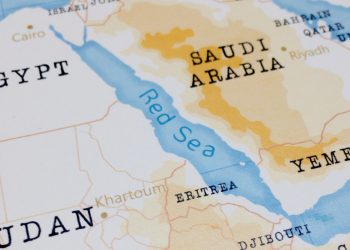The legal protection of human rights is adequate, but the big challenge in maritime is the enforceability of the law that is already in place, experts agreed in a recent podcast on maritime law.
Most of the human rights abuses that take place on land can be handled by the state authorities, but in shipping, after the 12-mile limit of territorial jurisdiction, we are in a grey area where jurisdiction stands with the flag state.
However, most ships today are flagged in states that do not have the capacity or willingness to enforce human rights law, noted David Hammond, CEO of Human Rights at Sea, and Steven Haines, Prof. Steven Haines. Professor of Public International Law, University of Greenwich.
Therefore, due to its particular nature of limited oversight, shipping constitutes a fruitful ground for human rights abuses, with human trafficking, harassment onboard, illegal migration, slavery and abuses being the main areas of concern. This is enabled by a phenomenon described as “sea blindness”, referring to the tendency of the world to overlook or ignore what happens at sea because “it is far” from the media spotlight.
#5 common human rights abuses at sea
- Forced labor and slavery: There is still literally a modern type of slavery going on onboard fishing boats. This occurs when a person is trafficked into a crew position without any contractual agreement to protect their rights. As these ships mostly operate with motherships, many of the victims are for years onboard and they barely see land.
- Trafficking of migrants: There have always been people taking advantage of those who are vulnerable. The continuous geopolitical tensions have facilitated trafficking involving the exploitation of vulnerable individuals who are seeking a better life by forcing them into labor or sexual exploitation.
- Excessive working hours and low wages: The nature of seafaring as a job unfortunately permits overtime, as seafarers do not ‘leave at the end of the working day’. According to ITF, sometimes the so-called ‘flags of convenience’ allow owners to bypass the better minimum wage and working conditions that are common in the countries from where they do business.
- Bullying or harassment: Bullying and harassment, including sexual harassment, is an abuse of human rights and living on a ship offers a limited alternative to avoid it.
- Abandonment: Abandonment may occur due to financial difficulties of shipowners or even because they can make more money by not paying wages. This can result in seafarers being abandoned in ports far from home without fuel, food and water and without pay for months on end.
The Geneva Declaration of human rights at sea
So, processes of prosecution of human violations at sea are very immature. To address these challenges, in 2019, a group of legal and maritime experts from around the world came together to draft the Geneva Declaration on Human Rights at Sea.
The Declaration sets out a set of guidelines for states on how to enforce human rights in the various zones that the sea creates, e.g., port states, flag states, coastal states. These include the obligation to respect the right to life, the prohibition of torture and other cruel, inhuman, or degrading treatment or punishment, and the protection of refugees and migrants at sea.
International humanitarian law (IHL) VS International Human Rights Law (IHRL) at sea: What is the difference?
According to the International Committee of the Red Cross, IHL is a set of international rules, established by treaty or custom, specifically intended to solve humanitarian problems directly arising from international or non-international armed conflicts.
IHRL is a set of international rules, established by treaty or custom, on the basis of which individuals and groups can expect and/or claim certain behavior or benefits from governments. Numerous non-treaty-based principles and guidelines (“soft law”) also belong to the body of international human rights standards.
Both frameworks are complementary, as they both seek to protect life and human dignity. Their main difference is that IHL applies in armed conflict, while human rights law applies at all times, in peace and in war. This creates some differences in their application: IHRL allows a State to suspend a number of human rights if it faces a situation of emergency, while IHL cannot be suspended.
However, a State cannot suspend or waive certain fundamental rights that must be respected in all circumstances. Such fundamental rights include the right to life, the prohibition of torture and inhuman punishment or treatment, the outlawing of slavery or servitude, the principle of legality and the non-retroactivity of the law and the right to freedom of thought, conscience and religion.
The way forward
When talking about human rights protection at sea, there is a metrics of different actions that can be taken in different zones by different states depending on their status.
To deal with sea blindness, the experts said, it is important to establish a theory as a starting point: That human rights are universal, and they apply onboard equally as they do on land. The sea is not a lawless place and the application of fundamental human rights should not make a difference.
Following this, all the other relevant actors, such as international organizations, non-governmental organizations, civil society bodies, private companies, masters of vessels, security personnel onboard vessels and consumers, also need to recognize and act upon their own roles in protecting of human rights at sea.




































































